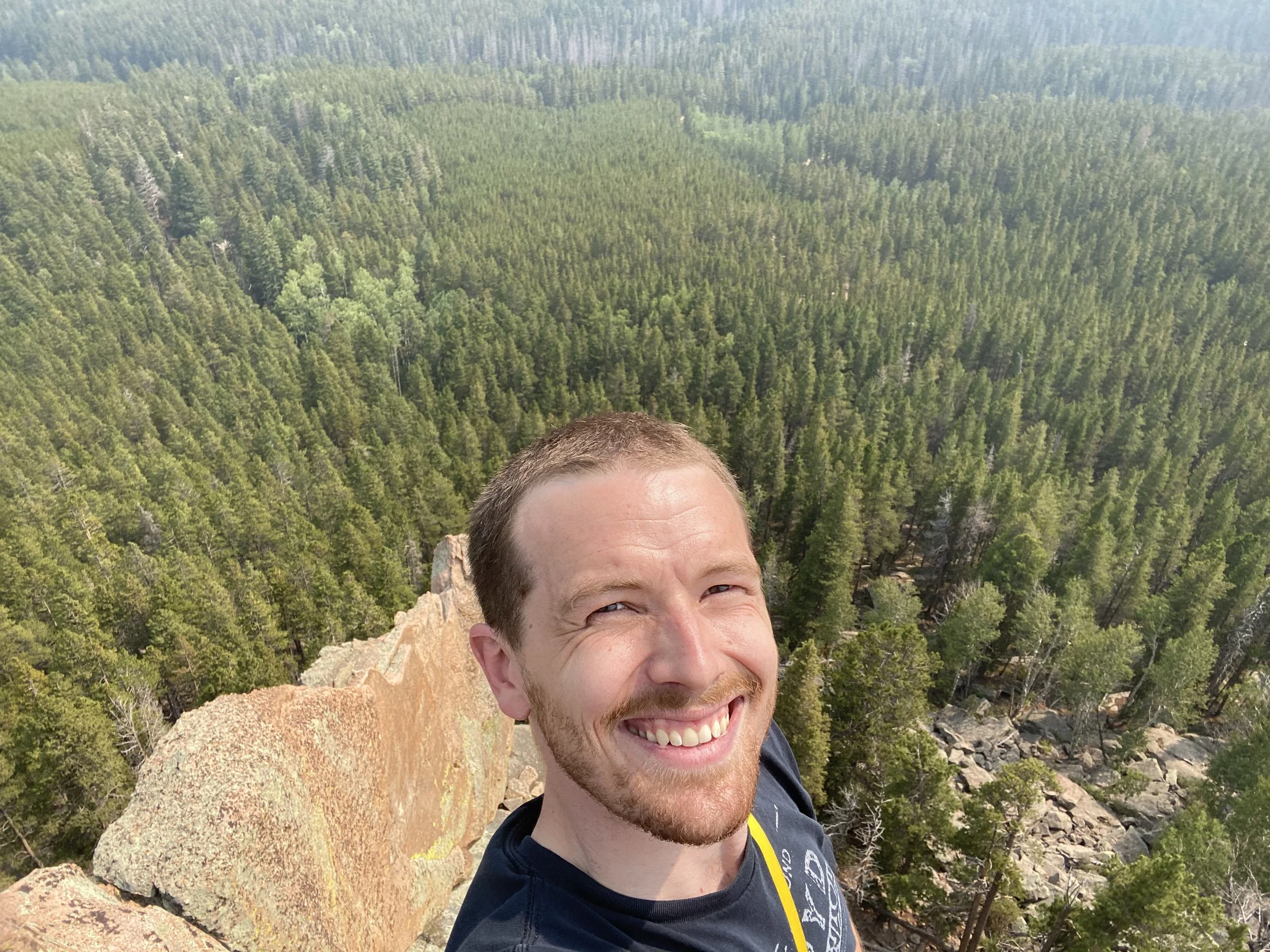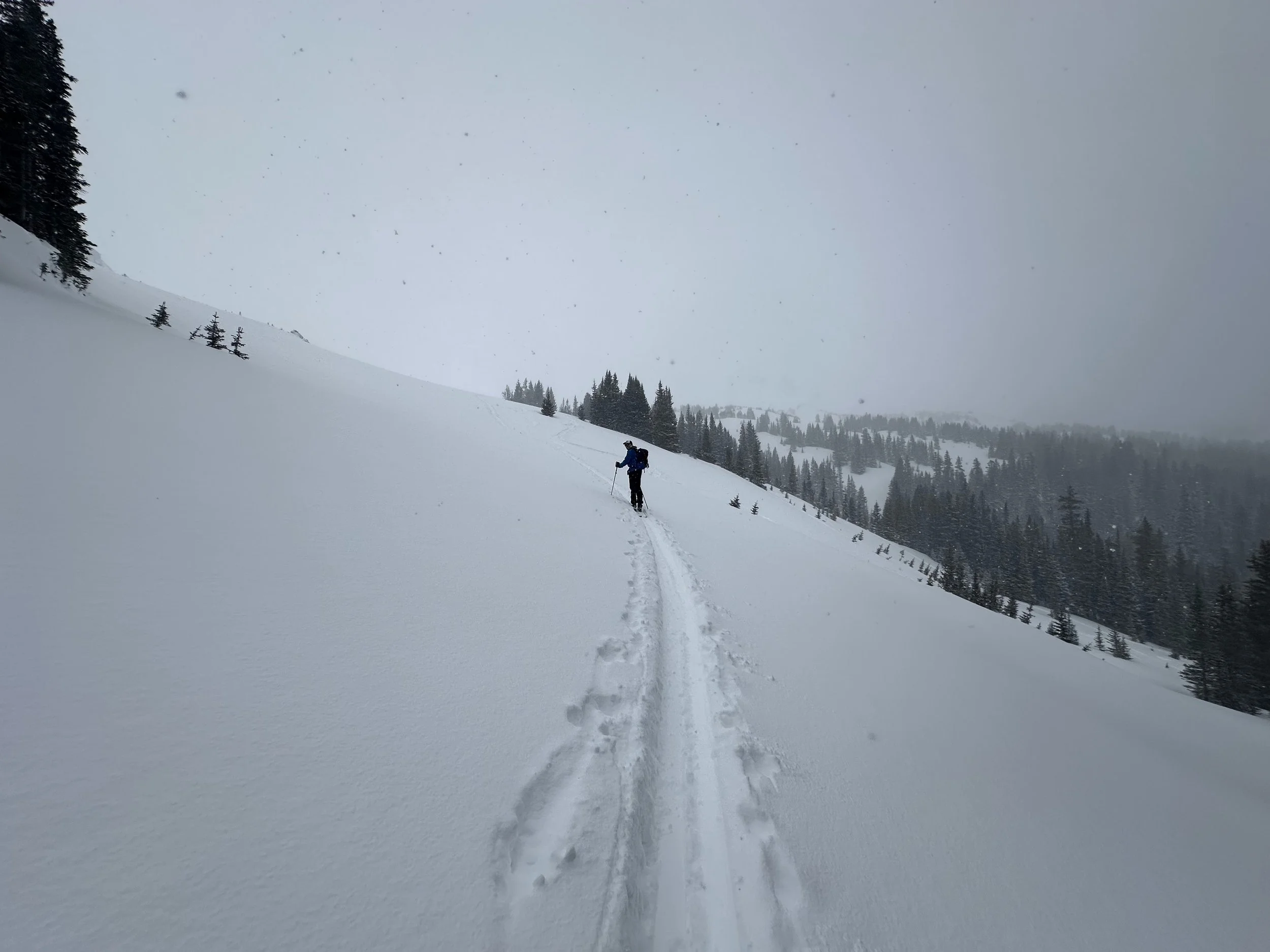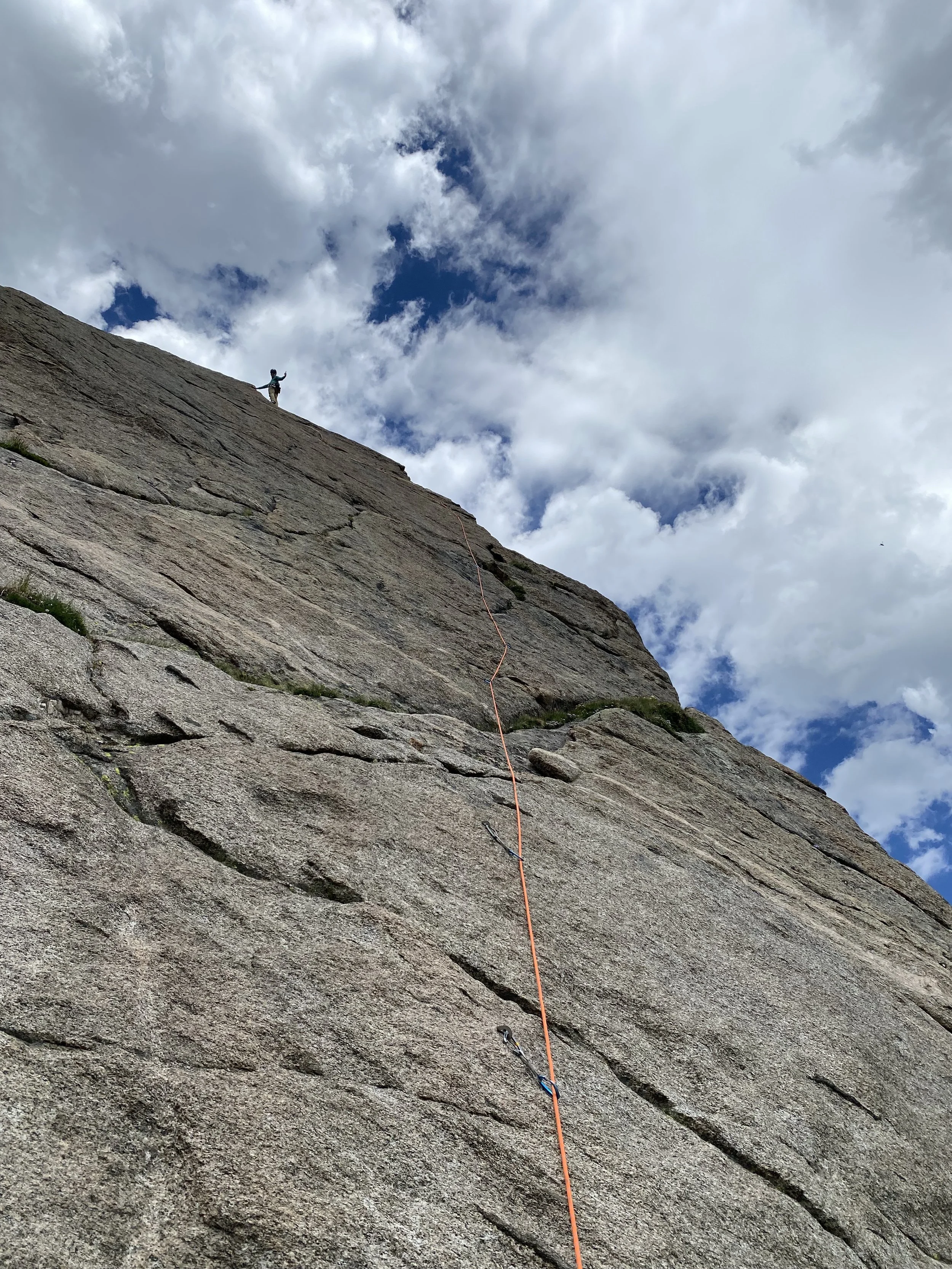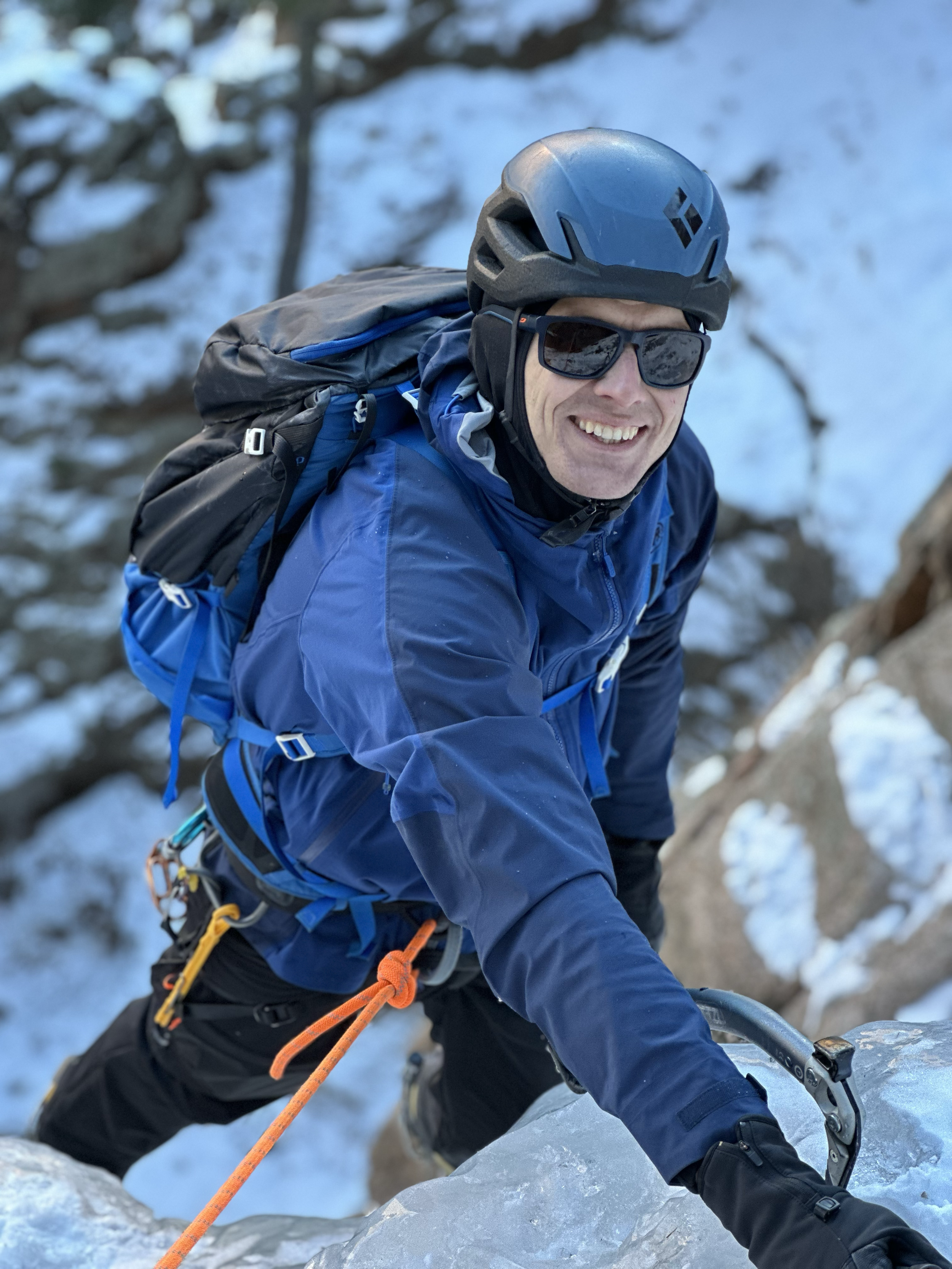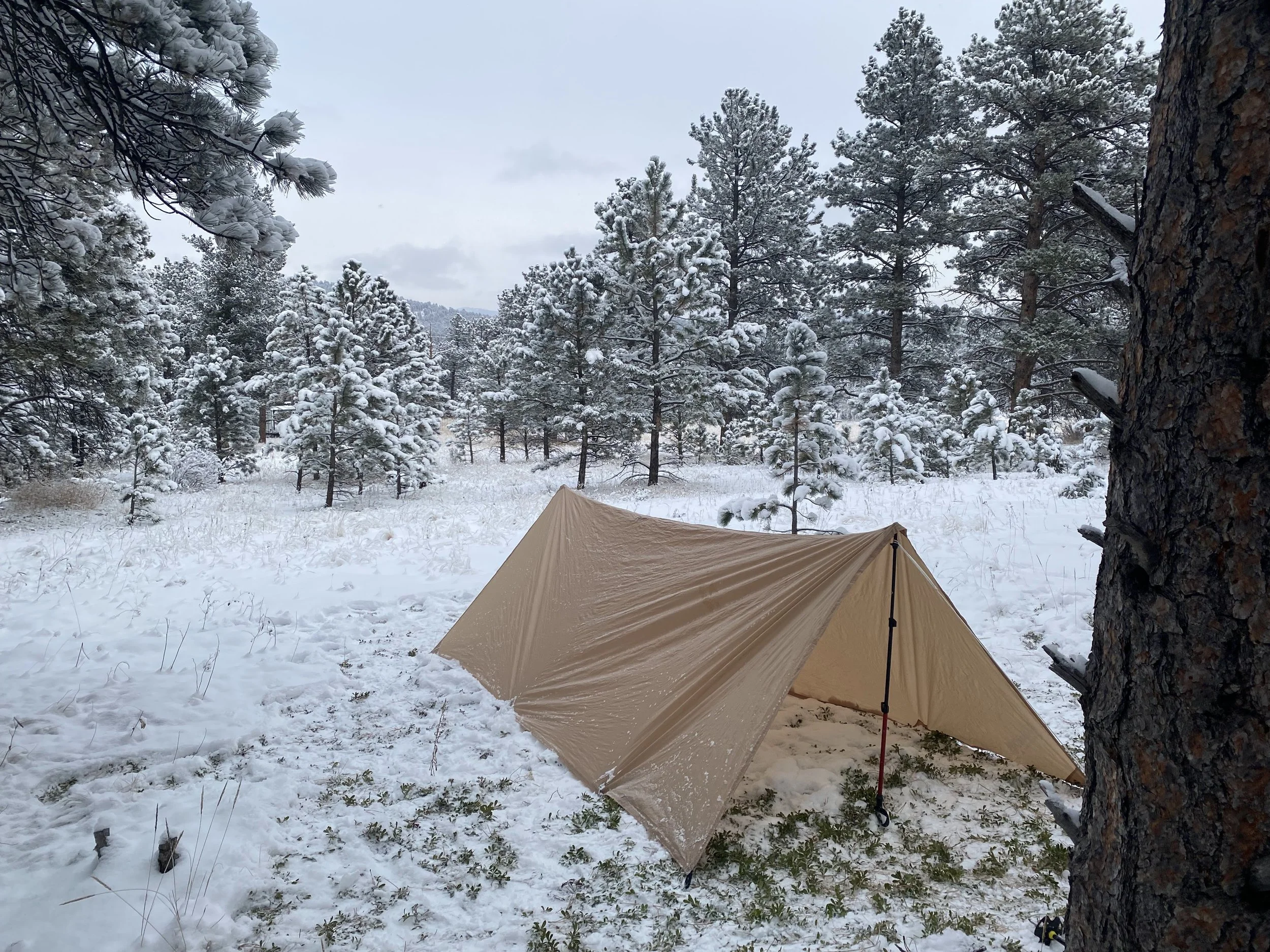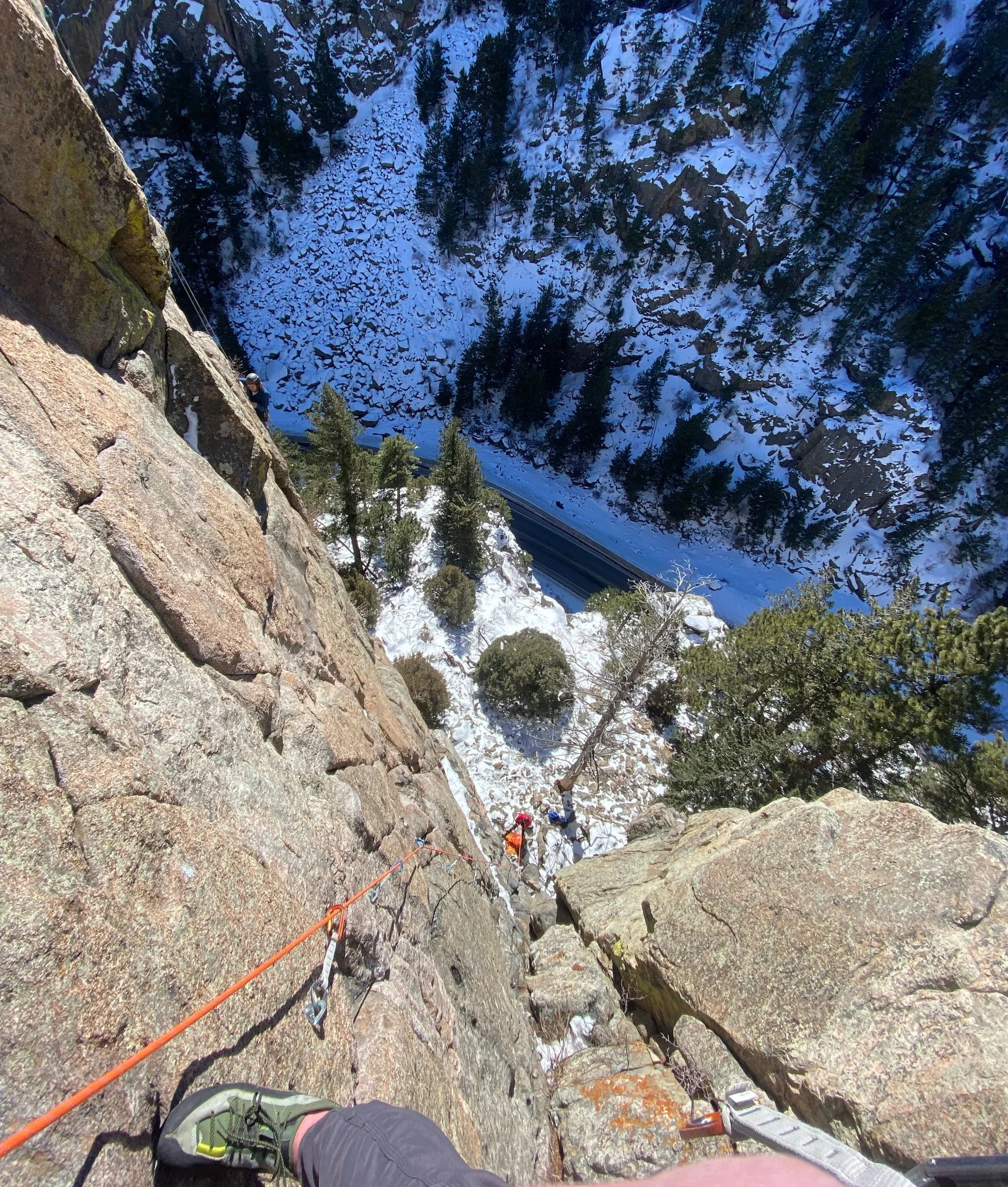My Approach:
From Personal Discovery to Professional Mission
When Traditional Therapy Failed Me, Adventure Saved Me
Traditional therapy was never enough for me during my adolescent years and early twenties – when I needed it most. While it provided valuable support during major life transitions as an adult, it couldn't give me what my developing spirit was calling for - genuine challenge and the opportunity to discover my strength.
Sitting in those offices, week after week, I felt like I was wasting time talking about what I was comfortable sharing—which by definition meant my blind spots stayed hidden. The therapists were kind, validating, accepting. But I wasn't happy with who I was. I wanted more confidence, better relationships, clearer direction, actual success in life.
The "you're perfect as you are" message felt deeply frustrating because I wasn't perfect. I needed to grow, not just gain insight. I needed action, not just awareness. I wanted challenge, not comfort. I wanted someone to push me toward who I could become, not validate who I was.
Traditional therapy taught me to understand my limitations. My spirit was starving for the chance to discover what I was truly made of.
The Moment Everything Changed
At 22, struggling with depression and social anxiety, lost in books about philosophy and spirituality but disconnected from my own strength, I climbed a 30-foot boulder during a hike with friends.
In work boots and completely present in my body, I reconnected with something I'd lost since childhood—the primal confidence of testing my limits, the embodied strength that no therapy session had ever touched.
That climb changed everything.
It reminded me of climbing trees as a kid, taking risks on playground equipment, jumping into my father's trustworthy arms. I'd lost that confidence through years of organized sports where I felt inadequate, too small, too weak to compete.
But on that boulder, I felt powerful.
I discovered free solo climbers like Alex Honnold and Dean Potter—athletes who pushed human limits through precise skill, mental clarity, and absolute commitment. They embodied something our culture had forgotten: strength through voluntary adversity.
This wasn't just recreation. This was education in what humans are capable of.
What Adventure Taught Me That Therapy Couldn't
Through climbing, then backcountry skiing, ice climbing, and mountaineering, I discovered principles that no therapy session had taught me:
Challenge Reveals Truth → Mountains don't care about your excuses. Weather doesn't accommodate your feelings. Natural consequences teach lessons that stick because they're real, immediate, and undeniable.
Strength Builds on Strength → Every route I climbed, every summit I reached, every risk I managed successfully built genuine confidence. Not the artificial confidence of positive affirmations, but the deep knowing that comes from proven capability.
Discomfort is Information, Not Emergency → The anxiety of being 40 feet up a rock face taught me to distinguish between real danger and the discomfort of growth. The discomfort of being challenged often gets labeled as 'anxiety' when it's actually our system preparing for growth. Learning to distinguish between real danger and the productive tension of expansion changes everything.
Excellence Requires Standards → The climbing grades don't lie. You either can climb a 5.10 route or you can't. This hierarchy of skill taught me that excellence is real, measurable, and earned through dedicated practice.
These lessons transformed not just my climbing—they transformed my life.
Why Our Culture Is Failing Young People
After working with 60+ families over five years, I've seen how well-meaning approaches are creating the opposite of what they intend.
We're making weakness an identity. Young people are diagnosed, categorized, and taught to identify with their limitations instead of discovering their capabilities. Struggle has become pathology rather than the necessary friction that creates growth.
We protect from necessary challenge. Every minor difficulty is removed, every discomfort medicated or accommodated. We've created a generation that expects rescue from challenge instead of learning to navigate it.
We validate instead of elevate. "You're perfect as you are" sounds compassionate, but it's devastating to young people who know they're capable of more. They don't need validation of their current state—they need challenge to become who they could be.
The result? Anxious, depressed, capable young people who continue to learn from a culture that has lost its reverence for strength as a virtue. Instead of celebrating the disciplined power that builds and protects, we've been taught to pathologically accept weakness and dysfunction as normal, even virtuous.
I've watched families spend years in traditional therapy while their teens get weaker, not stronger. More anxious, not more capable. More dependent, not more resilient. More identified with their diagnoses, not their potential. More connected to communities based on limitation, rather than shared strength.
When I Discovered What Actually Works
Working at a specialized counseling center, I was exposed to adventure-based programming for the first time. I got my climbing certifications and began leading weekly climbing groups and therapeutic adventures, while developing real-world skill coaching approaches in homes and community settings.
That's when I witnessed transformation that traditional therapy couldn't create:
A boy with complex ADHD and autism who was hyperactive in indoor settings took my instruction on an outdoor-specific climbing technique and executed it perfectly on his first try. Watching him become focused, present, and competent when his full body was engaged in challenging activity showed me something profound.
A 13-year-old who tried to manipulate his way out of a snowshoe hike halfway through—crying, whining, engaging rescue-seeking behavior. I held the line: "Buddy, you've made it halfway through the loop. This is hard, and it is cold out here, and you're totally capable of continuing to take one more step. There's no helicopter coming to rescue you, but I'm going to stay right here and walk with you." He made it. The pride and relief on his face when his parents greeted him after that hard hike was undeniable.
A group of teenage girls building a tarp shelter in a snowstorm, cooking blueberry pancakes on backpacking stoves, being silly and playful with each other in ways they never were in therapy groups.
A young adult with body image struggles who found vulnerability and real grit making progress on climbs that challenged her coordination. She learned to ask for help and accept it without the painful negative self-talk that usually accompanied any difficulty.
A young man with autism and anxiety who spent entire weeks creating conflict and drama about upcoming adventures, convinced he would fail and be miserable. Yet every time, he'd return from the rock canyon with profound peace—marveling at how his rigid expectations never matched his actual capability or his joy in placing traditional climbing protection, belaying his mentor up routes, and experiencing the beauty of flowing creeks and towering stone.
A 15-year-old who habitually whined and sought negative attention when stressed, discovering primal awe during a steep winter snowshoe to a summit with epic views of the Continental Divide. The complaining dissolved into reverent silence as panoramic views opened before us, followed by genuine camaraderie as we heated cocoa on a backpacking stove while cold winds nipped our faces and fresh bobcat tracks marked our path.
A strong, athletic teenage girl who had always connected through outperforming others, learning that deeper connection came through slowing down and mentoring newer climbers. She discovered that opening her heart to teach others was far more fulfilling than showing off—and far more effective at building the authentic relationships she'd been seeking, both with herself and others.
These weren't isolated incidents. This was a pattern.
Adventure experiences were reaching kids that traditional approaches couldn't touch. They were building real capabilities, not just insights. They were creating genuine confidence through proven achievement.

The Warrior-Mentor Approach
The warrior archetype - not someone who fights, but someone who faces what must be faced with courage in service of growth and community - represents the healthy masculine principle our culture desperately needs
I believe young people need what our ancestors provided: the warrior-mentors who combined fierce love with high standards.
High Challenge + High Support
I create opportunities for controlled adversity while providing the skills and support needed to succeed. Not artificial challenges with guaranteed outcomes, but real tests that reveal and strengthen capacity.
Natural Consequences as Teachers
Instead of lectures about responsibility, I create situations where responsibility is required. The mountain teaches better than any therapist about preparation, decision-making, and follow-through.
Strength-Based, Not Deficit-Focused
We won’t spend endless time processing why you struggle. We will focus on building capabilities so struggle becomes manageable. Action is the antidote to anxiety - providing the embodied proof that insight alone can rarely deliver.
Truth-Telling Over Validation
I won't validate destructive thinking or enable weakness. I care too much about your potential to pretend you're as limited as you’ve been taught or enabled to believe. Sometimes growth requires shattering comfortable illusions.
Name Origin & Philosophy
The name "Bear's Cairn" joins my family nickname with the ancient wisdom of mountain wayfinding. Cairns – those carefully stacked stone markers – have guided warriors and travelers through challenging terrain for thousands of years. They mark the path without removing the challenge, provide direction while honoring individual navigation, and stand as proof that others have successfully traveled this difficult ground before.
This captures the warrior-mentor approach perfectly. Like ancient cairns, I believe in:
Marking the path to strength while honoring each teen's unique journey
Building capabilities one challenge at a time through sustained development
Adapting methods as conditions change while maintaining direction toward growth
Creating achievements that endure – confidence earned through proven capability
The cairn philosophy reflects what teens actually need: not rescue from difficulty, but guidance through it. Not removal of challenges, but the skills and support to meet them with increasing strength.
Why This Works for Struggling Teens
The adolescent brain is specifically designed for challenge-seeking and status-building. Recent neuroscience shows that teens who experience appropriate challenge with skilled mentorship develop enhanced brain connectivity, stronger executive functioning, and lasting confidence based on earned competence.
Adventure-based approaches work because they honor what teens are actually seeking:
• Respect through real achievement, not artificial praise
• Meaningful contribution to group success and peer mentorship
• Collaborative decision-making where they're treated as capable partners
• Wise feedback: honest assessment paired with unwavering belief in their capacity to rise to higher standards
Natural environments respond to effort and technique regardless of diagnoses or neurological differences - they provide clear, honest feedback that builds genuine competence.
These environments unlock dormant strengths that therapy offices can't access.
How This Shows Up in Practice
On the climbing wall: When a teen says "I can't do this route," I don't validate their limitation. I break down the specific moves, teach the technique, and stay with them until they discover they possess capabilities they never knew existed.
In the wilderness: When someone wants to abandon a challenging goal midway through, whether on a rock face or summit trail, I remind them that growth happens in the space between comfort and capability - we stay present and find the next right step.
In real-world settings: When a teen avoids a job interview due to anxiety, rather than just talking about their fears, we practice the actual interview process until they can navigate it with confidence, and then I walk them to the interview door.
In capability building: I let teens struggle with problems before offering solutions. The struggle itself builds the frustration tolerance and problem-solving skills they need for life.
This is compassionate ruthlessness: I'm not going to rescue you, and I'm not going to abandon you. We're going to sit in this discomfort and navigate it together.
My Unique Integration
It's very rare to find someone who has my clinical background and personal adventure experience. I can integrate all of it in a personalized way that connects with your family's unique needs.
Master's in Holistic Counseling provides clinical foundation in developmental psychology, trauma-informed care, family systems, and integrated approaches to human growth and healing.
AMGA Climbing Certifications give me the technical skills to create safe, challenging experiences.
15+ Years of Personal Adventure taught me these principles in my own life through multi-pitch rock climbing, paddling alpine lakes, ice climbing frozen waterfalls, scrambling high-alpine ridgelines, and ski-mountaineering winter peaks while navigating avalanche terrain. I've learned what it means to face genuine consequence with skill, humility, and wisdom—and I continually re-discover the profound joy, personal power, and sacred reverence that comes from communing with wild forces far greater than ourselves
60+ Families Coached through the intersection of adventure and human development.
But most importantly: I've lived the transformation from understanding my problems to discovering my power. I know what it feels like to be trapped in stories about what's impossible and what it takes to shatter those limitations and step into continuous expansion of what's possible.
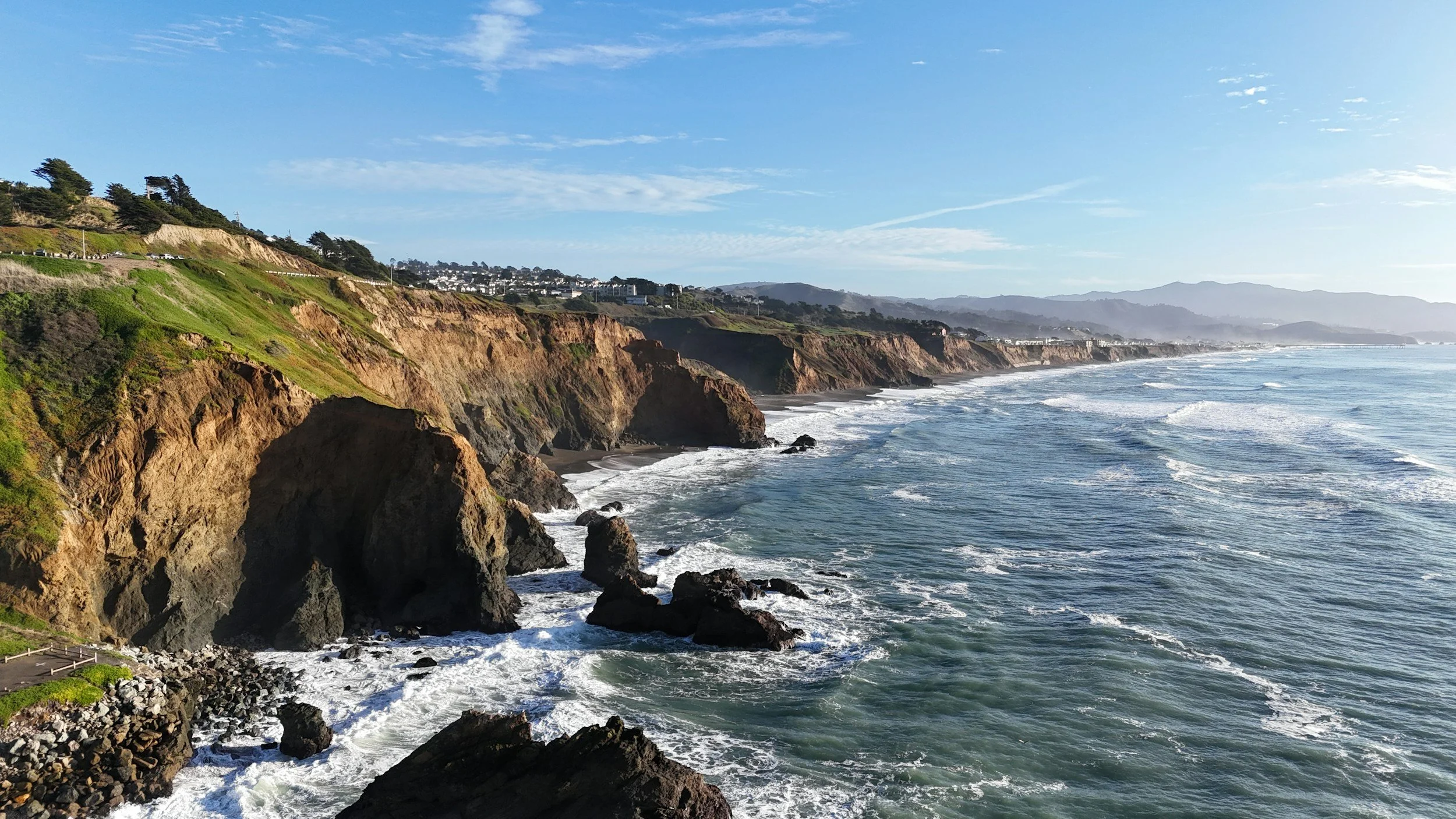
The Deeper Mission
This isn't just about individual teens. It's about course-correcting a culture that's lost its way.
We need young people who embody strength in service of others, not domination. Leaders who take responsibility, protect their communities, and model what excellence looks like.
We need humans who can handle difficulty without being broken by it. Who choose growth over comfort, contribution over consumption, meaning over entertainment.
We need warriors—not fighters, but people who face what must be faced.
In 5-10 years, I want to have contributed to a cultural shift where families seek out healthy challenge, strength, and discipline for their teens. I want to run groups where kids find their power and grow into peer mentors. I want to help schools provide experiences that reconnect teens with the sacred relationship between human spirit and wild places - remembering that nature is our first home, our greatest teacher, and the source of healing that technology and civilization have severed us from.
I want to prove that young people are far more capable than our culture teaches them to believe.
The Choice
You can continue with approaches that validate current limitations and hope gradual insight leads to change.
Or you can choose an approach that reveals capability through challenge.
The choice is whether your teen learns to manage their anxiety—or discovers they're stronger than they thought.
Whether they understand their executive functioning challenges—or develops the skills to overcome them.
Whether they process their social difficulties—or practices social courage in real situations.
I believe your teen is far more capable than they've been taught to believe.
Let's prove it.
Ready to Explore What's Possible?
This approach isn't for everyone. It's for families ready to choose growth over comfort.
If your teen deserves a warrior-mentor who believes in their strength, let's talk.
Alexander is an expert in knowing how to make you feel comfortable and heard. I have witnessed Alexander working with complex diagnoses and family systems, and he has navigated it all with patience, ease, and grace. His knowledge around experiential and outdoor therapeutic adventures is unmatched. Anybody who gets to work with him would be lucky.
—Neurodiversity Community Leader




